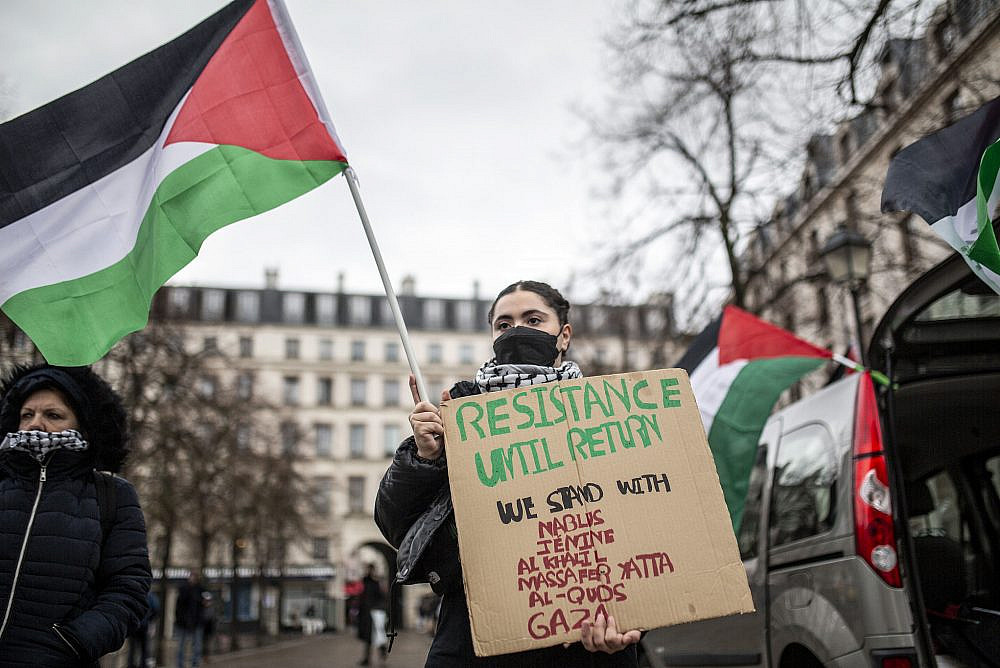There is an enormous disparity between the funding given to organizations that support Israeli apartheid and those that support Palestinians, resulting in the systematic perpetuation of hardline Zionist causes while disempowering and fragmenting Palestinian groups. A new report we published last year addresses this gap and its impact, and proposes new strategies to counteract the imbalance by refiguring how philanthropic funding can be utilized to strengthen the movement for Palestinian liberation.
The consequences of the imbalance in funding are profound: the success of anti-boycott bills in the United States; the growing adoption of the contested IHRA definition of antisemitism worldwide; the ongoing growth of settlements in the occupied West Bank and the arming of right-wing Israeli militias; the spread of online troll farms that strive to ruin the lives of activists for Palestinian rights; and the well-funded opposition that pounces on popular progressive candidates who speak even tepidly regarding Palestinian rights.
The lack of resources to fight back means that organizations in the Palestine liberation movement are consistently spread too thin, forced to fight too many battles at once, and stuck defending what few rights or advances are won, while struggling to spend time on organizing, building the infrastructure of the Palestine solidarity ecosystem, and creating compelling visions for full justice.
None of this is a coincidence. There is a longstanding and deepening network of right-wing Zionist organizations dedicated to deterring individuals and organizations from speaking out on Palestine and imposing personal and professional costs on those that do. The effect of these strategies is to create an atmosphere of fear and to raise the penalty for working within the Palestinian solidarity space, whether as an organization or a funder. Underpinning many of these tactics is Islamophobia and anti-Arab racism, which informs a shared worldview across the Israeli government and the far-right, often neoconservative donors who fund and uphold Israeli apartheid.
Gatekeeping the modes of Palestinian resistance
Historically, it has been difficult to even speak about Palestinian rights and freedom in the vast majority of philanthropic spaces, for fear of being labeled antisemitic or antagonizing powerful donors. Even in self-identified progressive spaces and networks, there are red lines around critiquing Zionism and discussing Israeli oppression beyond the occupation.
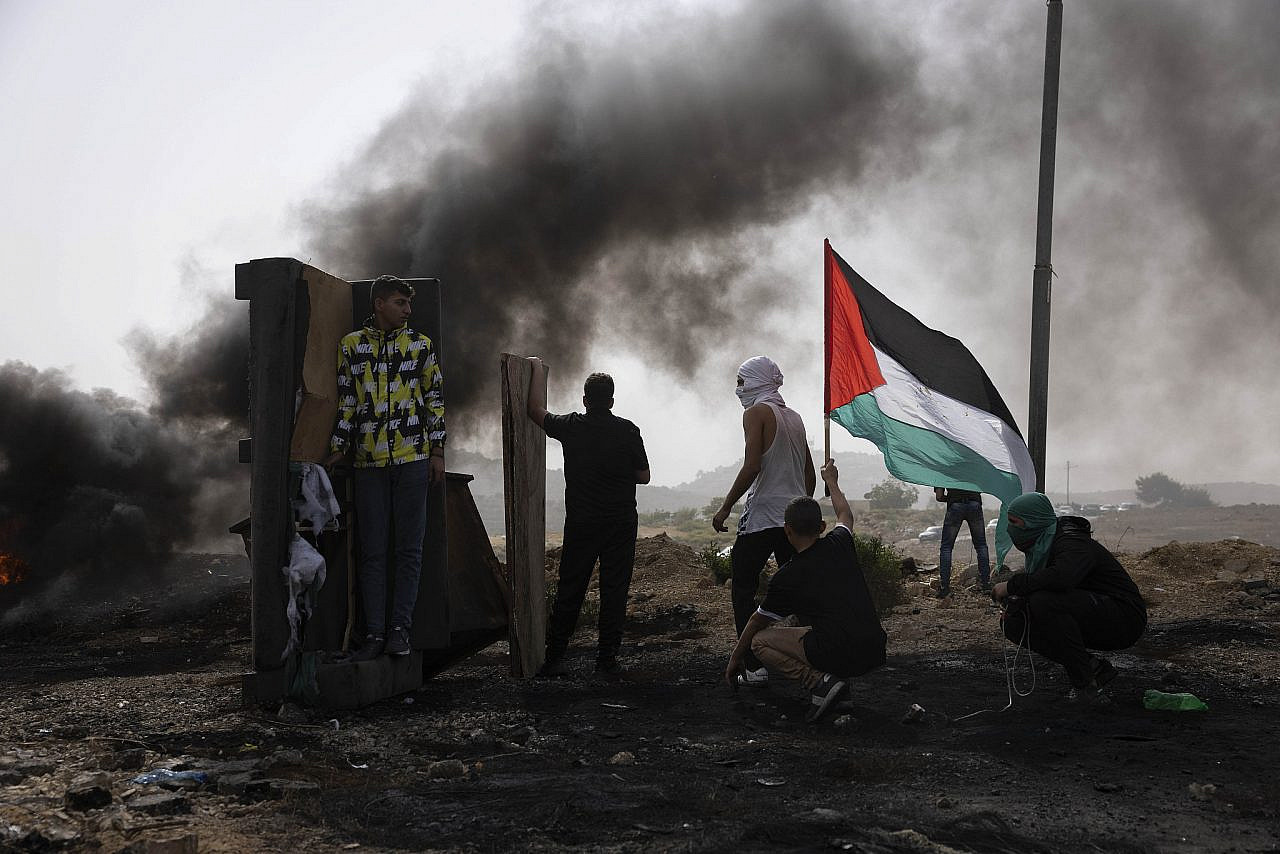
In particular, many Jewish foundations with a progressive approach to domestic funding also define themselves as Zionist. These foundations exert pressure on their peer organizations, networks, and grantees to constrain the parameters of conversations, in addition to shaping which projects and groups are funded. And the harm caused by this gatekeeping of resources is not only manifest in the money directly deployed to break the Palestinian movement.
Philanthropic funding to Palestinian organizations and those that support them is too often distributed as a way to more subtly reinforce Israel’s political goals by blocking Palestinian collective action and perpetuating the fragmentation of Palestinian communities that reinforces Israel’s political goal. Every time a grantmaking institution limits its funding to specific Palestinian populations based on where they are located, or won’t support organizations that support BDS, or requires “dialogue” between Palestinians and Jewish Israelis as a prerequisite of the grant, it is dictating terms based on the power of their funding.
All of this is why, late last year, we were proud to introduce the report Funding Freedom: Philanthropy and the Palestinian Freedom Movement, published by Solidaire Network, a community of donor organizers that supports intersectional movements. For the first time, we look at philanthropic funding as an integral part of what it will take to achieve Palestinian freedom — by assessing the barriers to sustainable giving and the way philanthropy has historically played a role in harming the movement, and by highlighting the opportunities and urgent need to address the extraordinary gap between the enormous amounts of money raised annually to support continued Israeli apartheid and the amount raised to fight for Palestinian liberation. This disparity stretches across the governmental and non-governmental sectors — from the at least $3.8 billion Israel receives from the U.S. government annually (mostly as military aid) compared to around $350 million for Palestinians (mostly humanitarian or recovery aid), to the billions of dollars Jewish and Christian evangelical groups donate to Israel each year.
As the authors of the report, and as two white Jewish women with U.S. citizenship who came through different paths to the awareness that we need to talk openly about this dynamic, we are acutely aware that leadership of the movement for Palestinian freedom belongs to Palestinians. As allies and partners, we are cognizant of the gatekeeping role that philanthropy has exerted over the modes and messages of Palestinian resistance, and are committed to breaking that pattern.
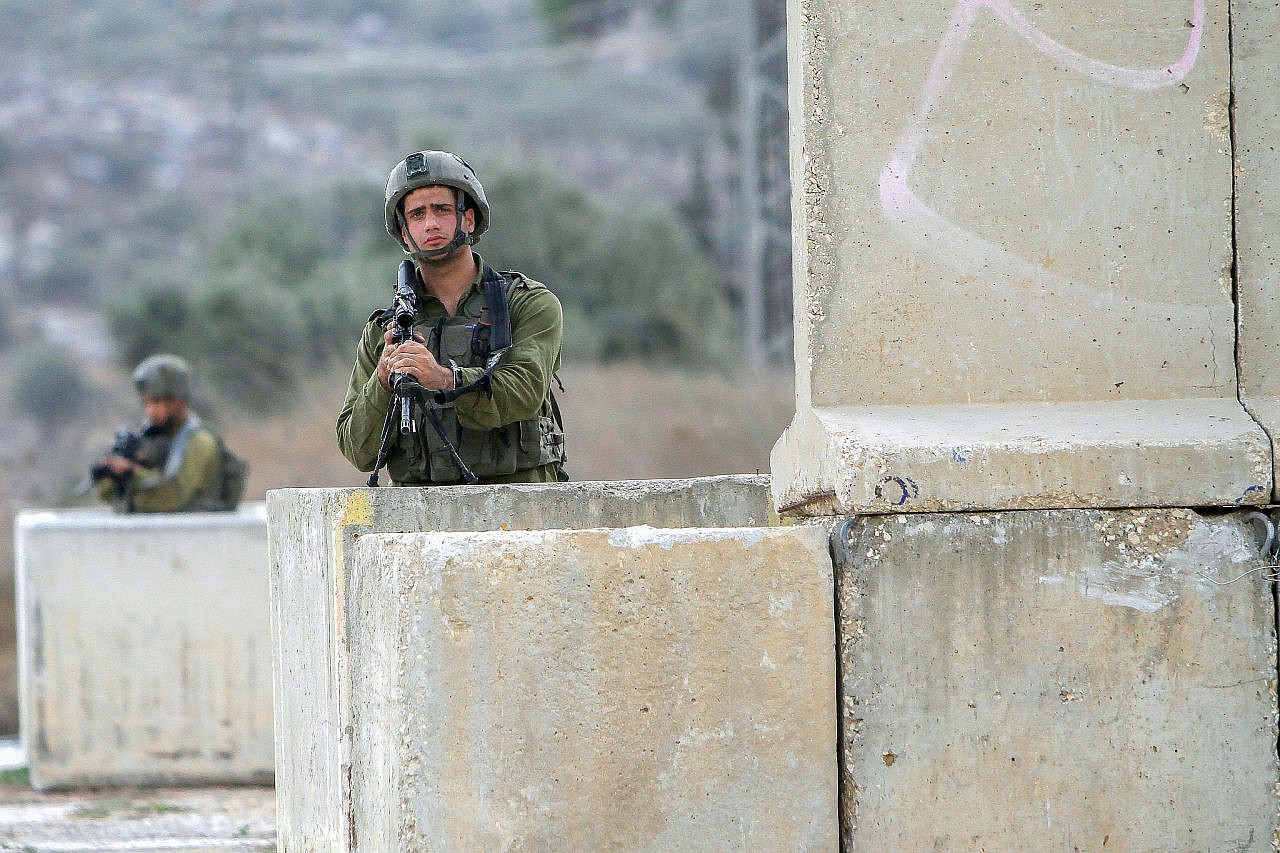
The threat of repercussions
Even when funding is allocated to Palestinian organizations, it can still be harmful if it depoliticizes Palestinian narratives (such as by avoiding reference to the Nakba, the right of return, or settler colonialism), reinforces the fragmentation of Palestinian people (by having separate funding guidelines, for example, for Palestinians inside Israel, in the West Bank and in Gaza), or enforces barriers between them by having different staff and offices and policies for different regions rather than considering them as a whole.
This is harmful both to individuals and to the organizations in which they work; one employee of an organization with whom we spoke while writing the report described the need to fit inside the parameters laid down by their liberal Zionist funders as ”traumatic.” That trauma is multi-faceted: it disempowers Palestinians, reinforces existing power structures, and makes Palestinian grantees feel forced to compromise on their principles in order to do their work.
One unhelpful response to the fear of controversy over talking about Palestinian freedom has been to avoid conversations about it entirely. This has been seen as a way to preserve progressive bona fides while circumventing the challenges of taking sides, but in practice it has meant that crucial discussions about how to support Palestinian rights and liberation cannot occur, and inconsistencies in organizations’ stated values are not addressed.
The fears are well-founded. Organizations or movements that step outside these parameters face potential punishment, most notably through withdrawn funding. This is what happened, for example, when the Movement for Black Lives was disinvited from events and ultimately, as the report discusses, lost significant funding from one of the largest charitable institutions in the world after using the word “genocide” to characterize the oppression faced by Palestinians in the Vision for Black Lives document.
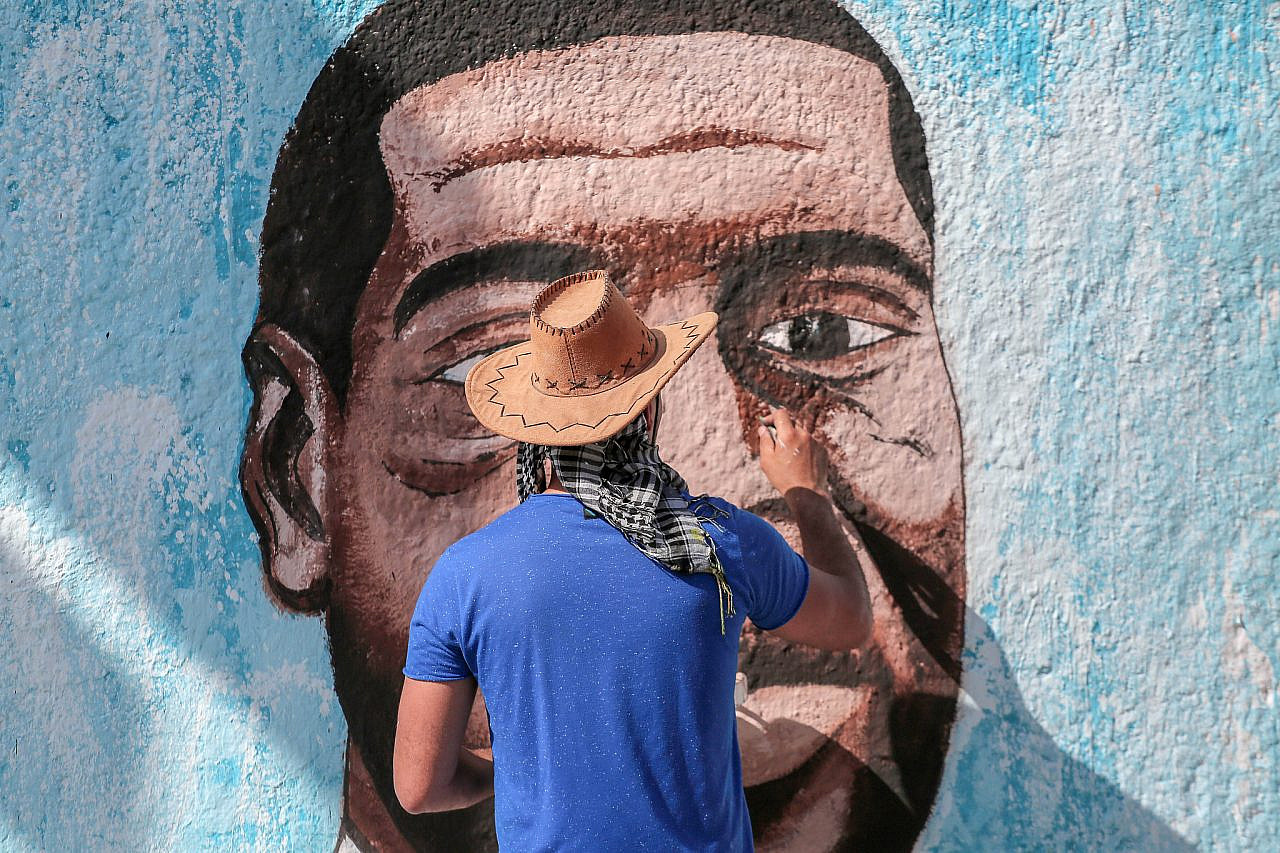
The role of philanthropy can be a fraught topic in any movement, and it is the subject of active debate within the Palestine movement. Groups like INCITE! Women of Color Against Violence have warned about the potential risks, compromises, and sacrifices involved when taking money from major donors. It is worth thinking about these critiques and how to be responsive to the very real issues they bring up, even for those of us who think that under current conditions we do need funding and the capacity it enables.
Given this reality, we believe our strategies need to include organizing the philanthropic sector to start addressing the enormous resource gaps — sustainably and without doing harm.
Is change afoot?
An encouraging development in the last decade has been the emergence of a nucleus of funders and networks that supports organizations working for Palestinian freedom, including anti-Zionist organizations. The principled support for Palestinian liberation from groups like the Movement for Black Lives and the Indigenous movement Landback, as well as racial reckonings within philanthropic institutions in the wake of the murder of George Floyd, have resulted in an increasing number of younger staff of color who are more conscious of and invested in Palestinian liberation than their generally older and whiter colleagues.
Such recent commitments to anti-racism can be utilized internally to push for new policies around Palestine funding, while public opinion polls demonstrate that this push is taking place within a context of growing support for Palestinian rights. Taken together, these developments create some potential building blocks for real change across the entire sector that we hope will only accelerate — starting by using our report as a tool for evaluation, reflection, and building new strategies.
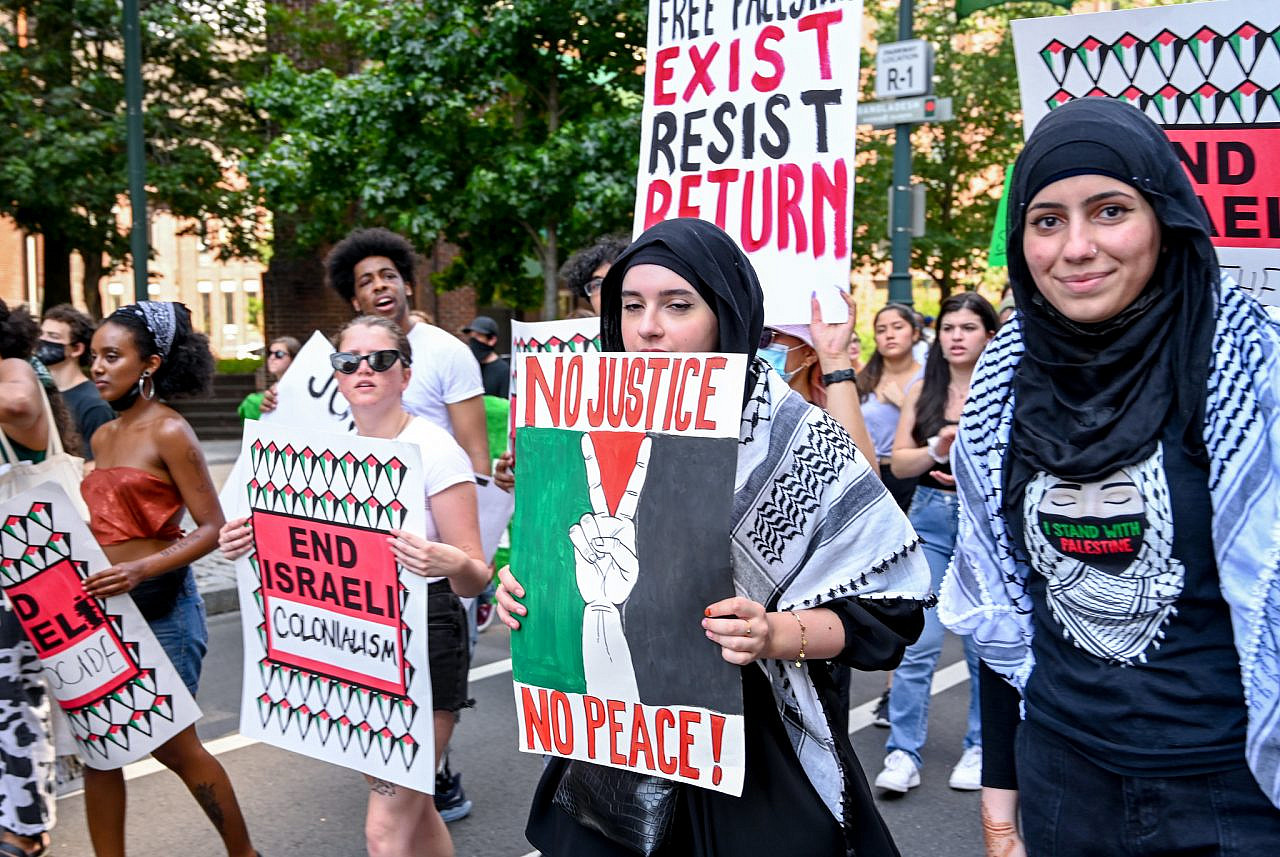
Some of the most exciting work in philanthropic circles today is the development of new models that directly address the inherently problematic position as both a giver and receiver of funds, and that return decision-making to the groups doing the work. Just as the extreme imbalances in funding are rooted in well-deployed political agendas, they can also be addressed strategically throughout the philanthropic sector. The report lays out a series of lessons learned and potential strategies to help shift the balance.
The common philanthropic practice of being “progressive except for Palestine” excludes Palestinians from progressive philanthropy’s commitment to collective liberation and alienates those of us who are donors acting on our consistent values. There is a great opportunity for progressive funders to examine the inconsistencies between their social justice values as applied across many movements and to join us in developing strategies to overcome them. Funding, though crucially important, is only one aspect of solidarity work, which must also include action and accountability. We hope the Funding Freedom report can be used as a tool for funders to do all three, in the service of the urgent need for Palestinian liberation.

